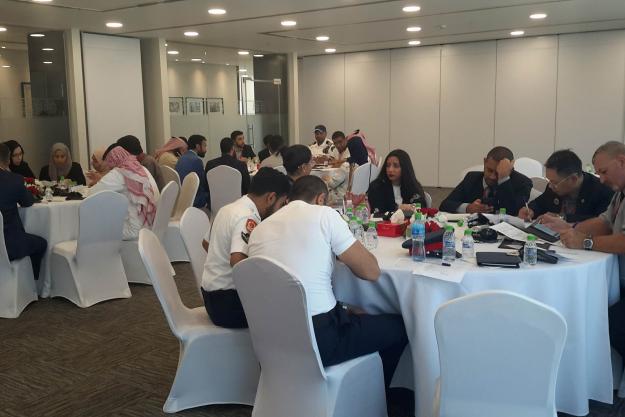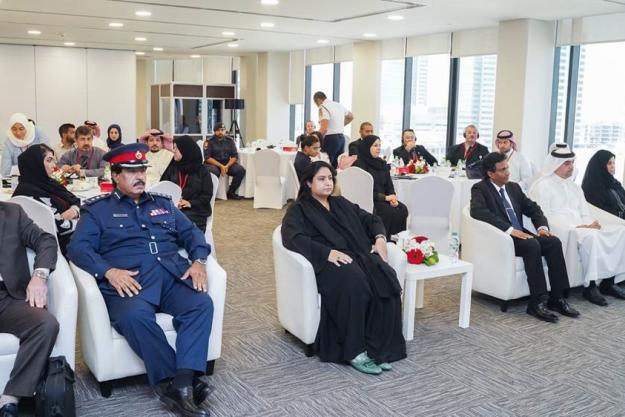THE HAGUE, Netherlands — 15 October 2019 — The Kingdom of Bahrain and the Organisation for the Prohibition of Chemical Weapons (OPCW) hosted a chemical safety and security management workshop to train industry specialists in Manama, Bahrain from 8 to 10 October 2019.
The training focussed on building strong chemical safety and security management skills in chemical industry clusters to mitigate threats by non-State actors. Participants shared their views on new anti-terrorism approaches through various activities, such as scenario-based strategies and quantitative risk assessment tools.

The workshop also addressed the importance of verification measures, risk assessment on health and safety management and chemical emergency planning to protect critical infrastructure.
In her opening statement, Undersecretary of the Ministry of Foreign Affairs and Head of the National Committee on the Prohibition of Development, Production, Stockpiling or Use of Chemical Weapons, Her Excellency Dr Shaikha Rana Bint Isa Bin Duaij Al Khalifa, highlighted the importance of implementing the Chemical Weapons Convention (CWC) by working regionally. She stated: “The long-term cooperation between the National Committee and the OPCW ensures support and assistance to State Parties to promote the peaceful use of chemistry”.
OPCW Senior Programme Officer from the International Cooperation Branch, Dr Rohan Perera, stated: “Promoting chemical safety and security is key to preventing re-emergence of chemical weapons. But there are many challenges. These can best be met by strong cooperation among governments, industry and the OPCW.”
The training was organised by the OPCW and Bahrain’s National Committee on the Prohibition of Development, Production, Stockpiling or Use of Chemical Weapons and the Destruction of such Weapons
Representatives from the Kingdom of Bahrain’s Ministry of Defence, Ministry of Environment, Ministry of Health, Ministry of Foreign Affairs and National Authority of Bahrain attended the workshop, as well as participants from various academic institutions.
Background
The Kingdom of Bahrain joined the Chemical Weapons Convention in 1997 and has been an active member of the OPCW ever since.
As the implementing body for the Chemical Weapons Convention, the OPCW, with its 193 Member States, oversees the global endeavour to permanently eliminate chemical weapons. Since the Convention’s entry into force in 1997, it is the most successful disarmament treaty eliminating an entire class of weapons of mass destruction.
Over 97% of all chemical weapon stockpiles declared by possessor States have been destroyed under OPCW verification. For its extensive efforts in eliminating chemical weapons, the OPCW received the 2013 Nobel Peace Prize.

